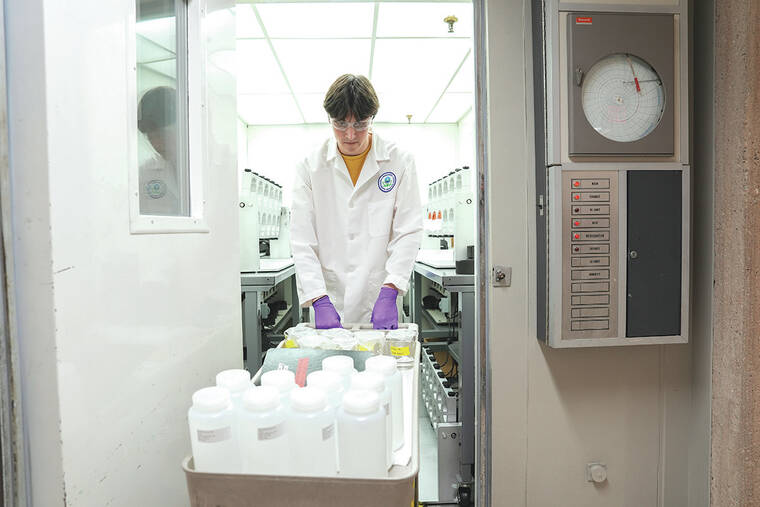Biden administration sets first-ever limits on ‘forever chemicals’ in drinking water
The Biden administration on Wednesday finalized strict limits on certain so-called “forever chemicals” in drinking water that will require utilities to reduce them to the lowest level they can be reliably measured. Officials say this will reduce exposure for 100 million people and help prevent thousands of illnesses, including cancers.
The rule is the first national drinking water limit on toxic PFAS, or perfluoroalkyl and polyfluoroalkyl substances, which are widespread and long lasting in the environment.
Health advocates praised the Environmental Protection Agency for not backing away from tough limits the agency proposed last year. But water utilities took issue with the rule, saying treatment systems are expensive to install and that customers will end up paying more for water.
Water providers are entering a new era with significant additional health standards that the EPA says will make tap water safer for millions of consumers — a Biden administration priority. The agency has also proposed forcing utilities to remove dangerous lead pipes.
Utility groups warn the rules will cost tens of billions of dollars each and fall hardest on small communities with fewer resources. Legal challenges are sure to follow.
EPA Administrator Michael Regan says the rule is the most important action the EPA has ever taken on PFAS.
“The result is a comprehensive and life-changing rule, one that will improve the health and vitality of so many communities across our country,” said Regan.
PFAS chemicals are hazardous because they don’t degrade in the environment and are linked to health issues such as low birth weight and liver disease, along with certain cancers. The EPA estimates the rule will cost about $1.5 billion to implement each year, but doing so will prevent nearly 10,000 deaths over decades and significantly reduce serious illnesses.
They’ve been used in everyday products including nonstick pans, firefighting foam and waterproof clothing. Although some of the most common types are phased out in the U.S., others remain. Water providers will now be forced to remove contamination put in the environment by other industries.
“It’s that accumulation that’s the problem,” said Scott Belcher, a North Carolina State University professor who researches PFAS toxicity. “Even tiny, tiny, tiny amounts each time you take a drink of water over your lifetime is going to keep adding up, leading to the health effects.”
PFAS is a broad family of chemical substances, and the new rule sets strict limits on two common types — called PFOA and PFOS — at 4 parts per trillion. Three other types that include GenEx Chemicals that are a major problem in North Carolina are limited to 10 parts per trillion. Water providers will have to test for these PFAS chemicals and tell the public when levels are too high. Combinations of some PFAS types will be limited, too.
Environmental and health advocates praised the rule, but said PFAS manufacturers knew decades ago the substances were dangerous yet hid or downplayed the evidence. Limits should have come sooner, they argue.



